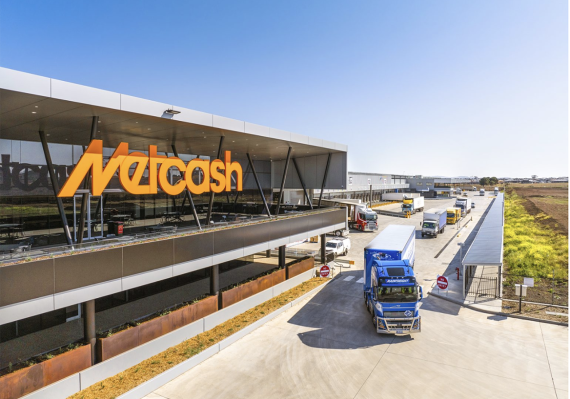Negotiating for growth: the smarter way for retailers to work with suppliers

26/04/2024 |
= Summary: Ed Betts reveals how retailers can use algorithmic tools to refine the negotiation process and use it as a springboard for pinpoint planning, product innovation, and future profit growth.
Rightly or wrongly, year-on-year (YoY) growth is seen as the measure of success to stakeholders and business leaders alike. But YoY growth very rarely happens organically. It is an active process, one which demands that every small efficiency is optimised.
Negotiating with suppliers to improve assortment, secure deals, and activate promotions is a key piece of the puzzle. Suppliers want the chance to negotiate, and successful negotiation is a win-win – but overburdened retailers can leave a lot on the table by not engaging effectively.
That kind of depth and reliability is the lynchpin of algorithmic retailing, the process of linking a big data model with automated and AI-assisted processes. It’s all about connecting all parties with the information that matters – turning otherwise complex negotiations into smooth, easy, consistent work which leaves key staff free to think.
Download the whitepaper: The Digital Transformation of Supplier Collaboration
Ensuring small suppliers are not left out
Joint business plans made with major vendors demand frequent and careful handling. This means major suppliers get a disproportionate amount of attention, leaving some small suppliers struggling to secure a meeting even once a year.
Failing to negotiate with smaller suppliers makes no sense – there is plenty of money to be made through smaller scale relationships. Smaller suppliers can present innovative products and offer significant deals, but they do not typically have the access to push for promotions to happen.
The burden of negotiation, in this situation, is currently the wrong way around. Retailers must find the time to listen to every incoming request or, better, restructure their negotiation process to reach out to smaller suppliers directly.
AI-driven automation is a strong solution here. It may be used to ensure margins are met, and to speed up smaller-scale negotiations with larger suppliers, allowing senior staff to make high-level decisions surrounding innovative lines rather than being mired in minutiae.
Acting with foresight
Negotiation is not only an opportunity to secure better deals; it is also a chance to ensure every possible advantage is discovered and activated. A keen understanding of past, present, and predicted future markets is vital – and it is another instance where AI tools and predictive models can make things sturdier, easier, and quicker.
With predictive AI in place, retailers can be certain of the strength of a deal as it is made, rather than finding out when it is too late. It may also highlight the truth by comparing, say, an offering of a vendor with initially deep pockets against an alternative which may generate more money in the long run.
Securing every possible advantage
Any offered promotional activity must be able to be activated, but marketing pots are not always central to the negotiation conversation. Automated systems can help ensure all trade funds are collected efficiently, without fail, cutting down on potential auditing and collections costs.
Knowing one’s capacity for action allows algorithmic models to help generate a detailed plan at the negotiation stage, taking promotional terms, viability, and deployment effort into account. In traditional retailing, such a process would delay negotiations by days or weeks; under algorithmic retailing, the process is fast, and it ensures the relevant business functions are ready to act when that deal later goes live.
Gaining agility and adaptability
Algorithmic retailing doesn’t do away with negotiation’s personal touch. But it does streamline everything. Working on a single point of record ensures that the complex procedure of putting deals into action is consistent from that point on.
It adds agility, too. If a supplier’s situation changes or a retailer’s commercial objectives are altered, a data-forward approach allows retailers to adapt to change, renegotiating quickly and with confidence even when the plans are in flight.
Major suppliers must be managed carefully. Retailers must chase YoY growth by negotiating with those suppliers which can offer innovative goods. Both things are possible – and both can be better with the right tools.
Download The Digital Transformation of Supplier Collaboration whitepaper to understand the steps that should be taken to ensure retail success against a backdrop of market uncertainty.







